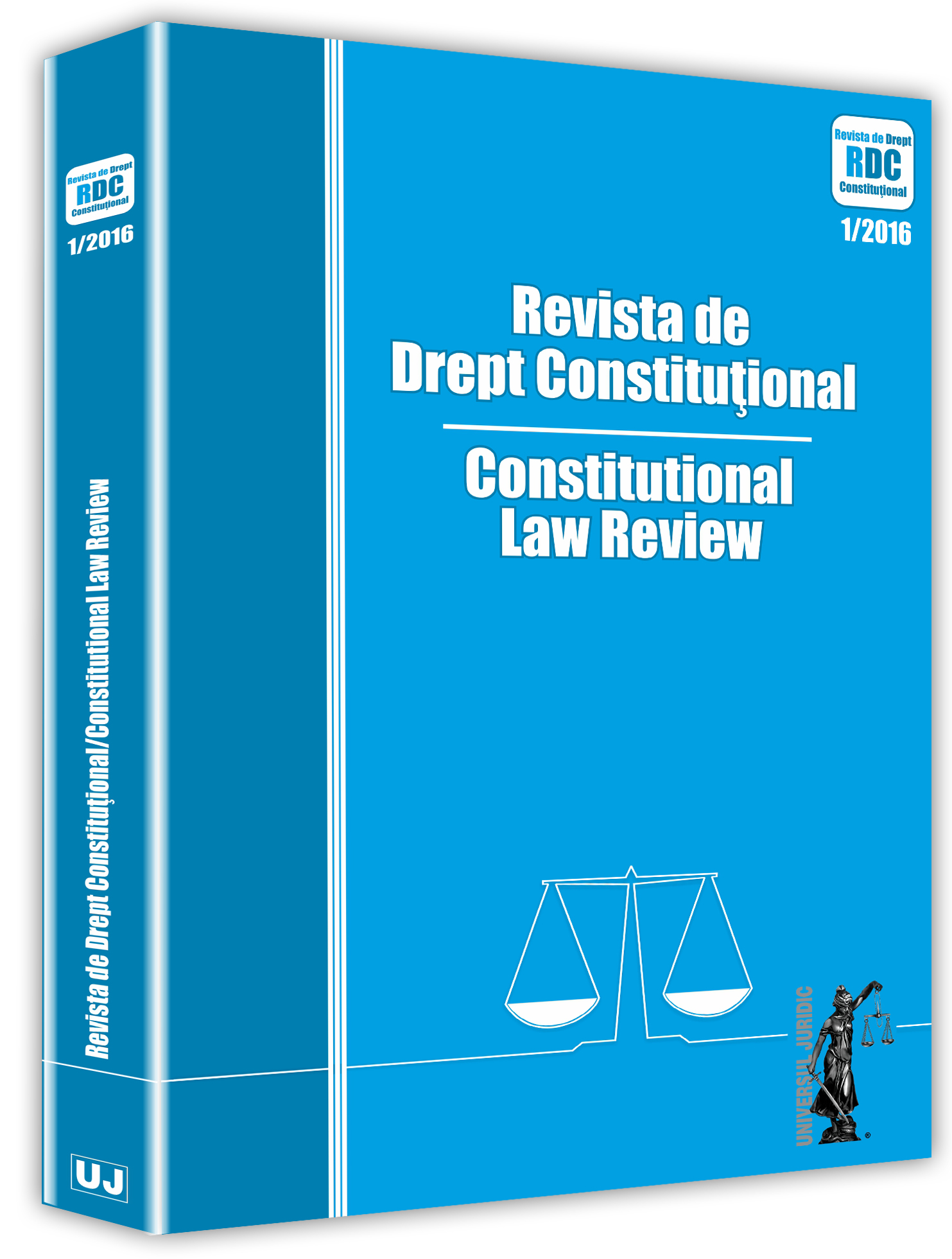

Keywords: the scope of trade mark; the concept of likelihood of confusion; the similarity of goods and services; the similarity of signs; the global appreciation of the likelihood of confusion
In this paper, we analyze the appropriate regulatory framework of the European Union which is related to the issue of the scope of trade mark, i.e. its application in practice, through appropriate judgements of the Court of Justice of the European Union. More particularly, the focus of the analysis is on the factors on the basis of which the scope of trade mark as a subjective right is determined, i.e. the limits of protection acquired by the concrete trade mark. In that sense, this paper will aim to provide a detailed view of, primarily, the concept of likelihood of confusion which represents the key element for determining the scope of trade mark as a subjective right, through the view of the individual elements from which it consists, i.e. on the basis of which the existence of the mentioned likelihood is determined in each concrete case.
More...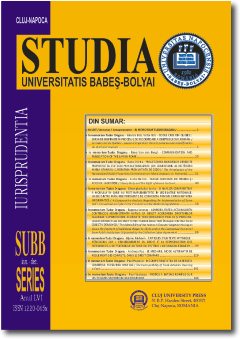
Keywords: radioactive waste management; primary responsibility of the licence holder; ultimate responsibility of the state.
The very special nature of radioactive waste triggers variable challenges to the allocation of responsibilities between the state and waste generators. To identify some clear delineation between the responsibility of the waste generator (operator of nuclear power plant, of a research reactor, reprocessing facility, or other industrial or medical licence holder) and that of the concerned state to protect its citizens, this contribution turns its attention to the legal framework created in this field of by means of European law. In order to identify some clear delineation between the responsibility of the waste generator (licence holder) and that of the state to protect its citizens, we turn our attention to the legal framework created in the field of radioactive waste management by means of European law. In the following parts, major legal instruments will be examined, analysing the allocation of responsibility between the waste generator and the state in whose territory radioactive waste is produced.
More...Keywords: Energy; Fuel Poverty; Renewable Energy Sources; climate; greenhouse gases; pollution; pipelines; emissions; security; shale.
Energy belongs to the area of “shared competence” between the EU and its member states. The basicobjectives of EU energy policy are: competitiveness, sustainability and security of supply. There are also concernsregarding pollution of the environment and the need for developing more cost-effective energy technologies.Renewable Energy Sources are an area of keen interest in the EU. The target is to have single energy market by 2014with the hope Europeans will benefit from the growth and development of the internal market also in energy sector.However, the energy area is also legally problematic as it falls under the category of “general economic interest” thatmeans exceptions from general competition legal framework and State Aid rules. Russia is one of the largest energysuppliers of the EU and disputes about transit of exported products have caused in recent years, serious imbalancesin supply. That is why, the priority in EU energy sector is based on encouraging the renewable sources and exploringnew technologies like the US has done, for example, related with shale gas. The main problem of effectivelyachieving the common EU goal is related to the fact that energy supply is a matter of every country’s nationalsecurity.
More...Keywords: human beings trafficking; European Court of Human Rights; Convention; case-law
After last year’s analysis regarding the European Union’s commitment to fight against the human beings trafficking, we have considered to further explore the human beings trafficking approach in the European Court of Human Rights case-law, the most developped regional jurisdiction on human rights. Surprisingly, the European Convention for the Protection of Human Rights and Fundamental Freedoms does not make an express reference to the human beings trafficking. However, we have to bear in mind that the Convention is a living instrument, its interpretation being made in the light of the present-day conditions. Thus, taking into consideration the global threat of this phenomenon, it is more obvious than ever that the Convention could not neglect this issue.
More...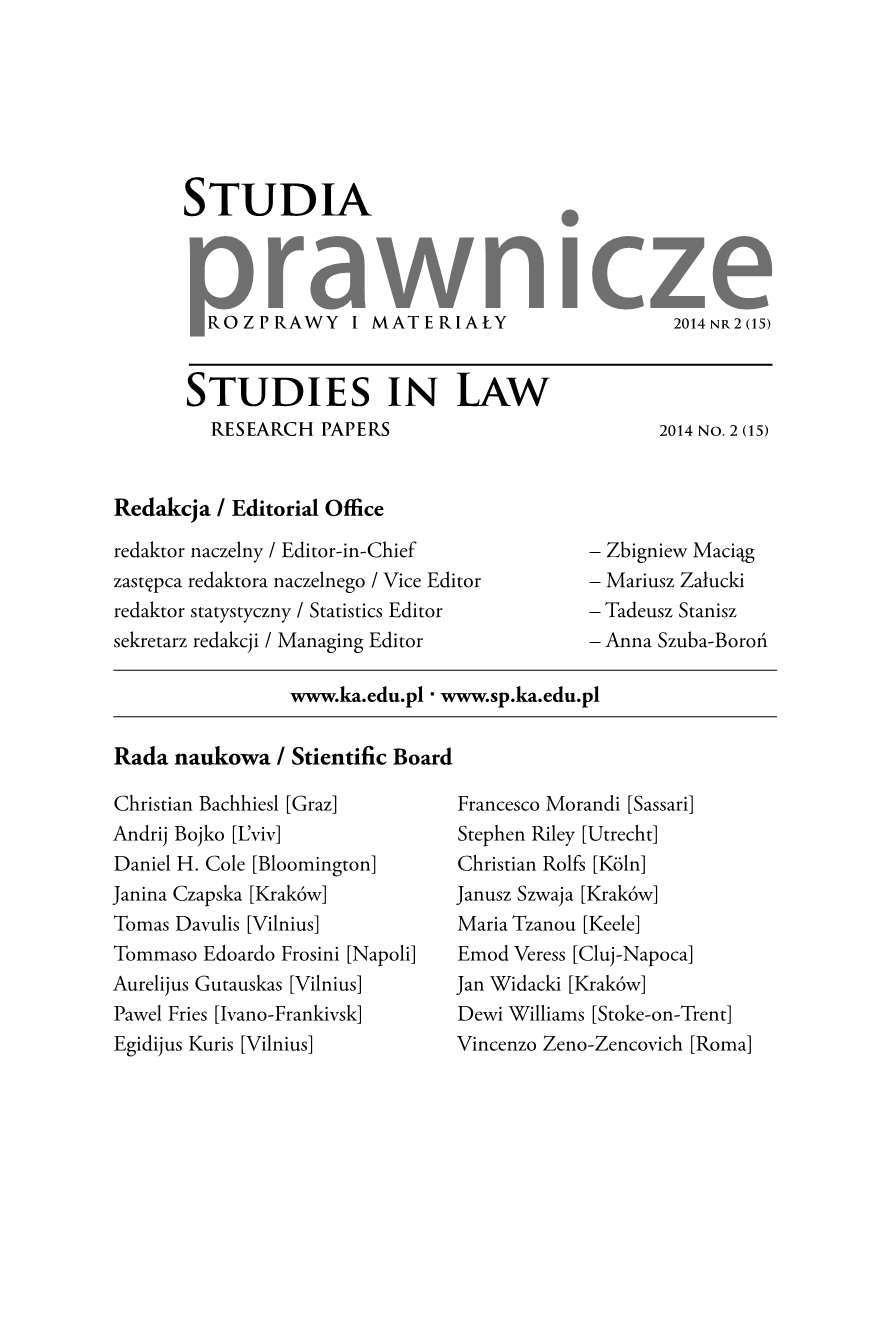
Keywords: labor law; social law; the ruling of the European Court of Justice;
More...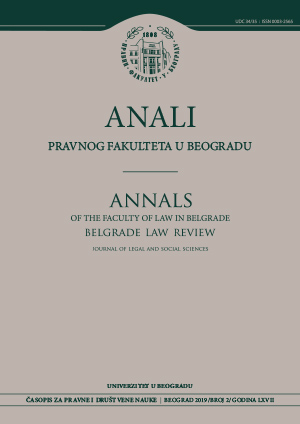
Keywords: Change of employer; Consent of employee; Labour law harmonization; Transfer of employment contracts; Transfer-related dismissal
Protection of employees in the event of a change of employer in Serbia was first regulated by the Labour Act (2005). This was a result of the harmonization of Serbian legislation with Council Directive 2001/23/EC, while the effect of the European Court of Justice jurisprudence was negligible. Protection is guaranteed regardless of whether the company identity has been preserved or not, thereby making it more favourable than the European concept of transfer of undertaking. Nevertheless, the relevant provisions of the Labour Act have often been evaded in practice, especially when it comes to the application of the principle of preservation of employment. This was facilitated by the content of certain legal provisions. There is a notable need for their improvements, in order to enable employees to continue to work for the transferee under the same working conditions and be protected from dismissals exclusively or predominantly motivated by the change of employer.
More...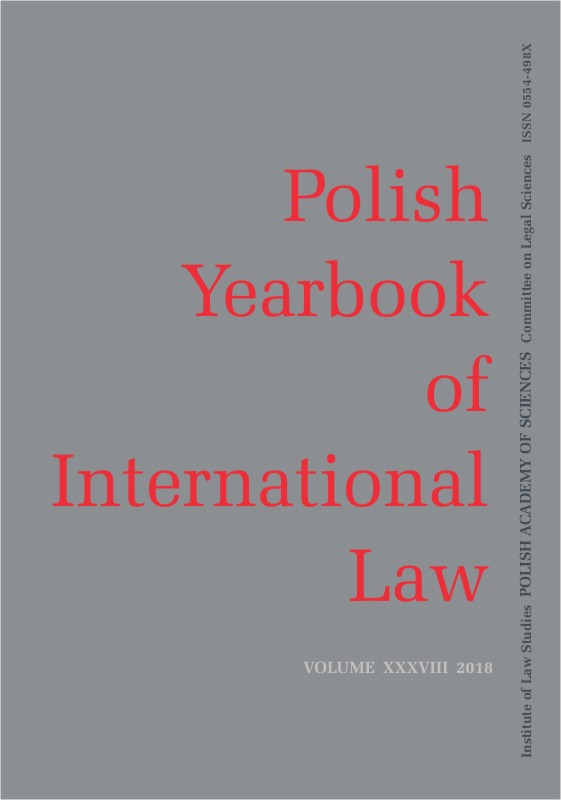
Keywords: personal data protection; police directive; victim of crime; Charter of Fundamental Rights
In EU law a lot of attention has recently been paid to personal data protection standards. In parallel to the development of the general EU rules on data protection, the Members States also develop cooperation between law enforcement agencies and create new information exchange possibilities, including the processing of personal data of participants in criminal proceedings. The aim of this article is to analyse whether the personal data of victims of crime are safeguarded according to the standards of the Charter of Fundamental Rights. For this purpose, the author analyses two directives: 2012/29/EU, which regulates minimum standards of victims of crime; and 2016/680/EU (also known as the Law Enforcement Directive), which regulates personal data processing for the purpose of combating crime. Based on the example of the Polish legislation implementing both directives, the author comes to the conclusion that the EU legislation is not fully coherent and leaves too much margin of appreciation to the national legislator. This results in a failure to achieve the basic goals of both directives. The author expects the necessary reflection not only from the national legislator, but also from the European Commission, which should check the correctness of the implementation of the directives, as well as from national courts, which should use all possible measures to ensure that the national law is interpreted in the light of the objectives of the directives.
More...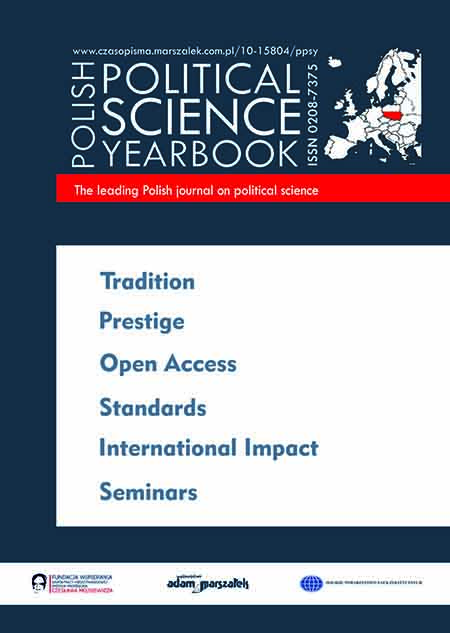
Keywords: AMENDMENTS; ELECTION; ELECTORAL CODE; ELECTORAL LAW; POLAND
In December 2017 and January 2018, the Sejm and Senate, thanks to the votes of the deputies of ruling party Law and Justice, passed hugely controversial law amending inter alia Polish Electoral Code. Its adoption was opposed by the parliamentary opposition, by the electoral administration bodies and by many experts, however unsuccessfully. The enactment of this law destabilises the electoral system without a clear or evident need and treats the electoral code as a political instrument. Secondly, it does not provide the sufficient time for adaptation (vacatio legis), which may jeopardise free and fair local elections and the stability of the political system. Thirdly, the bill contains numerous unclear provisions and is in many parts written in a careless and contradictory way. Such amendments do not correspond with the European standards, described in the Venice Commission’s Code of Good Practice in Electoral Matters.
More...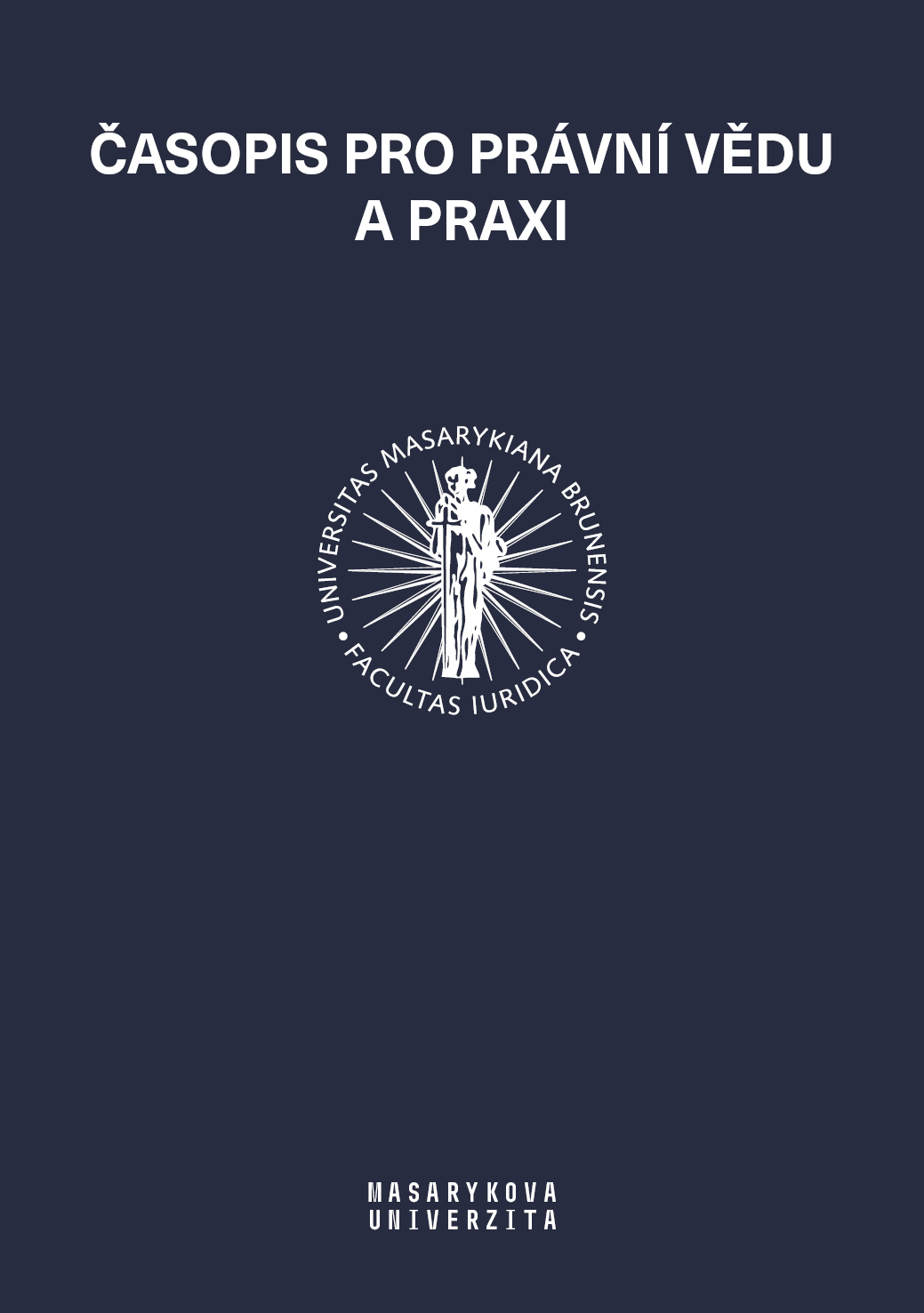
A limited liability company has the basic features of capital companies. But compared to the joint stock company, which is a typically capital company, it shows certain features evoking a personal company (for example a change of the memorandum of association may be still realized by an agreement of all members, members may be bound by the memorandum of association to execute the objective, for which the company was established, by means of their personal activities). Hence the limited liability company is on the border between capital and personal companies and it represents an interim form, which combines the advantages typical for both groups of companies – members of the limited liability company do not assume unlimited liability for the company obligations but they are not alienated from the company to such extent that they would not be known to the company and the company management would be assumed by third persons.
More...
Keywords: cultural heritage law; criminal law; Italian and EU law; legal definitions of cultural property; photographs as cultural property; art market; photography market;
Photography has only recently come to be considered, besides being a creative work protected under copyright law, also as a possible element of “cultural heritage”. Even in Italy, with its traditionally pervasive regulation of cultural property, while the issue was raised in the 1970s it only entered the legal framework on cultural heritage in the 1990s. During the same period, photographs began to be considered as “cultural goods” under the European legal framework, albeit with mixed attitudes. This article provides a summary of this legal evolution, including an analysis of possible effects of the 2017 reform of Italian cultural property export law on this specific area, and discussing the impact of current regulation on the photography market.
More...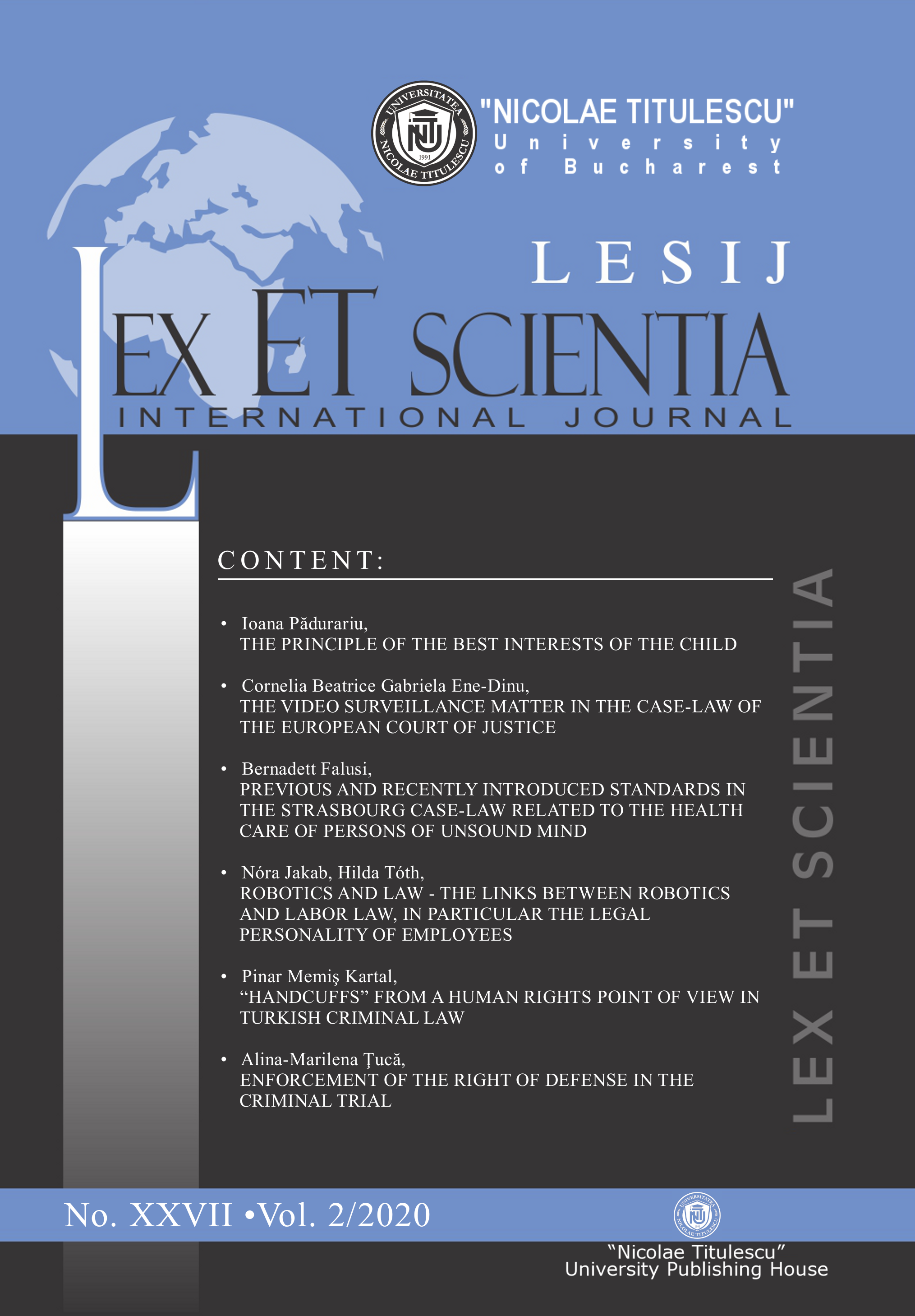
Keywords: personal data protection; monitoring; protection of life; protection of property; video surveillance; legitimate interest; proportionality;
Nowadays, the personal data protection issue is becoming more and more prominent, both in the state institutions and in the private sector. The economic agents and public institutions are required to follow clear rules in what concerns the personal data processing both in terms of the employees and in terms of the individual requesting access to certain goods or services. However, how do we appreciate the concept of personal data protection when balanced with the protection of life, personal property or privacy? This question is becoming more and more present and the answer is absolutely required when we discuss about the video surveillance of living spaces, courtyards and common use space or private parking. Another sensitive aspect interferes when video surveillance involves an area of public space.
More...Keywords: long-term care; system; organisation; financing
The organisation and funding of a long-term care system have been one of the most commonly debated issues in the social policies of developed European countries since the 1920s. The key issue in the debate on the long-term care system is to what extent the population should finance their own needs for custodial care and assistance, and to what extent it should be done by the state. Another important issue is whether the funds for long-term care should only be beneficial for those who cannot pay from their own assets (residual model), or whether long-term care services should be a universal right. The existence of such huge national differences has contributed to the intensity of this debate, both regarding how the system is organised (according to the type of benefits) and how the resources are generated. Bearing in mind the foregoing, in this paper, the author analyses the long-term care systems for people dependant on custodial care and assistance in several most developed European countries. The paper examines their organisation and funding, and highlights their major advantages and disadvantages, which may eventually serve as an indication for improving the domestic system.
More...Keywords: hate crime; European Court of Human Rights; practice; Republic of Serbia
The author deals with the case law of the European Court of Human Rights with regard to hate crimes. The paper presents and analyzes the Court judgments entailing the obligation to examine the existence of prejudice in the committed offenses, envisaged in Articles 2, 3 and 8 in conjunction with Article 14 of the Convention. The Court’s case-law initially pertained to hate crimes committed by state authorities, but it subsequently evolved to cover hate crimes committed by individuals. At the end of the paper, the author presents a normative framework of hate crimes in the Republic of Serbia and points out to the shortcomings in the mode of incrimination, as well as to the problem of not applying the standards established by the Court in investigating the existence of possible prejudice in the committed crimes.
More...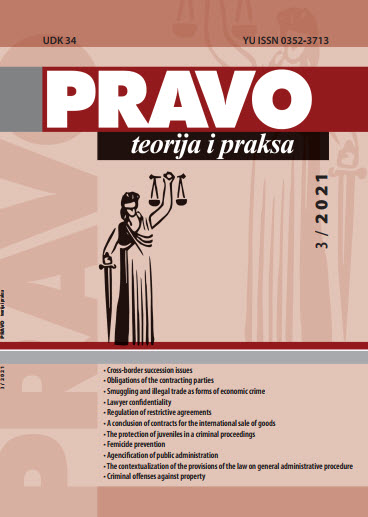
Keywords: Restrictive arrangements; competition infringement; measures for protection of competition; competition in the EU
This paper explores the questions regarding regulations of restrictive agreements in Republic of Serbia as well as in the European Union. Moreover, it has a concept of a competition explained in order to make the importance of the exemption of agreements with the competition infringement noticed. The measures and requirements for protection of competition are presented as well. The aim of the paper is to present the importance of restrictive agreements, and to explain if the market should be protected only from an individual agreement or from all restrictive agreements. Moreover, the point whether the competition is protected from all infringements or just from some of them is explored. From all this stated, it can be concluded that there are big discrepancies in regulations against competition infringement in legal regulations of Republic of Serbia in comparison with regulations of the European Union.
More...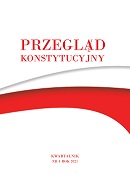
Keywords: online conference; Europe; Constitutional Courts; law-making;
Dnia 28 stycznia 2021 roku odbyła się konferencja międzynarodowa pt. „Judicial Law-Making in European Constitutional Courts” zorganizowana online przez Centrum Interdyscyplinarnych Studiów Konstytucyjnych Uniwersytetu Jagiellońskiego (CISK UJ) wspólnie z Wydziałem Prawa i Administracji Uniwersytetu Jagiellońskiego oraz Central and Eastern European Regional Chapter of the International Society of Public Law (ICON-S CEE). Konferencja poświęcona była prezentacji wyników badań międzynarodowego zespołu badawczego kierowanego przez Monikę Florczak-Wątor, które zostały opublikowane w 2020 r. w pracy zbiorowej wydanej nakładem wydawnictwa Routledge1 .
More...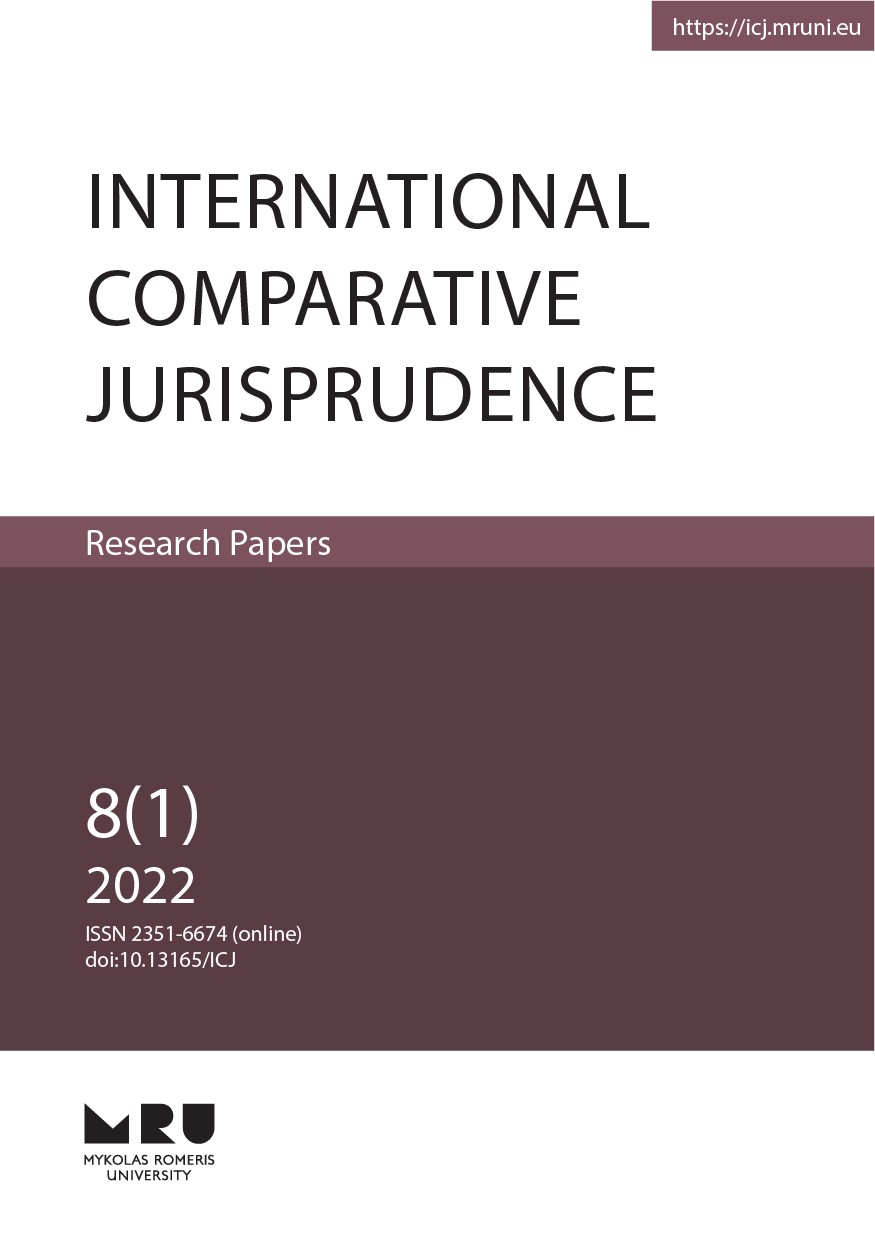
Keywords: cross-border insolvency; European Union law; main insolvency proceedings; secondary insolvency proceedings;
This article focuses on the coordination of main and secondary insolvency proceedings in cross-border insolvency cases. The authors analyse how main and secondary insolvency proceedings should be coordinated in different aspects of these proceedings, namely: the opening of insolvency proceedings, the exercise of creditors’ rights, and the treatment of the debtor’s assets. The procedural peculiarities of the opening of secondary insolvency proceedings are also discussed. The article also examines how insolvency practitioners and courts in parallel cross-border insolvency proceedings should coordinate their actions to ensure proper response to the debtor’s insolvency problems. Moreover, the authors assess the relevant case law of the Court of Justice of the European Union and whether is compatible with the goal of effective cross-border insolvency proceedings.
More...Keywords: right of defence; access to file; time; information; lawyer; facilities; free assistance; interpreter;
The right of defence is the cornerstone of a fair trial in which the parties enjoy certain procedural guarantees in order to find out the truth in the case and to protect the accused person from abuse by the authorities. The case law of the European Court of Human Rights provides numerous solutions regarding the application and interpretation of Article 6, paragraph 3 of the European Convention on Human Rights on the right of defence, which grants the accused the right to receive detailed information on the accusation, to have adequate time and facilities necessary for the preparation of his defence, to defend himself in person or through legal assistance, to hear the prosecution's witnesses and to obtain the ttendance of defence witnesses, as well as the right to free assistance of an interpreter.
More...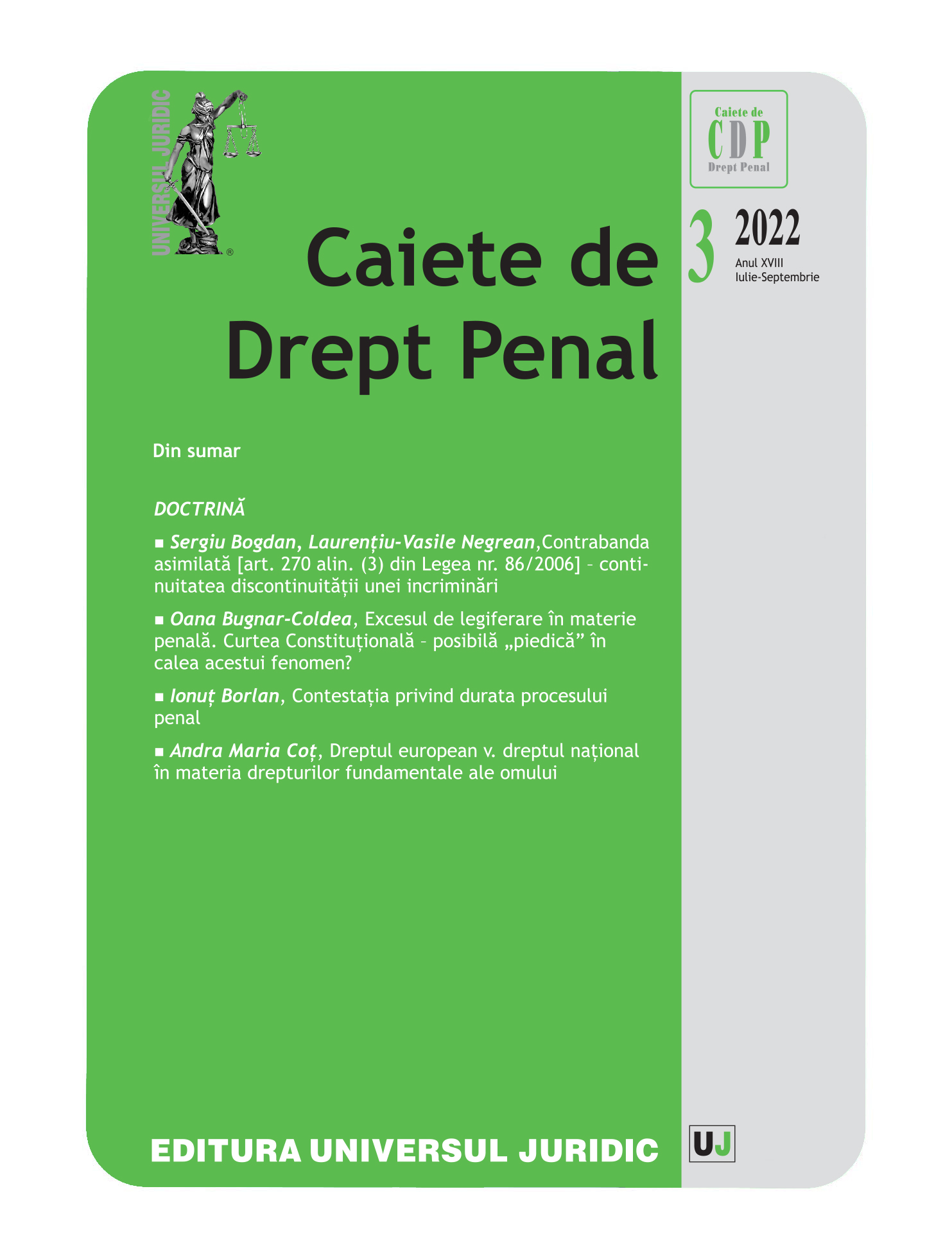
Keywords: fundamental rights; European law; national law; constitutional court; ECJ; Solange saga; counter-limited doctrine; ultra vires doctrine; national identity; Melloni; Taricco; PM and others;
Fundamental rights are protected at several levels, ranging from the national to the European level. However, the standard of protection may differ, sometimes the national standard being superior. The question therefore arises as to whether, in the event that a European legal norm infringes the national standard of protection in respect of a fundamental right, the former could remain unapplied. Specifically, the question arises as to whether there can be cases where national law prevails over European legislation in the area of fundamental rights. In this article we have attempted to answer this question by examining the views of the constitutional courts of the European Member States and that of the Court of Justice of the European Union on such a conflict.
More...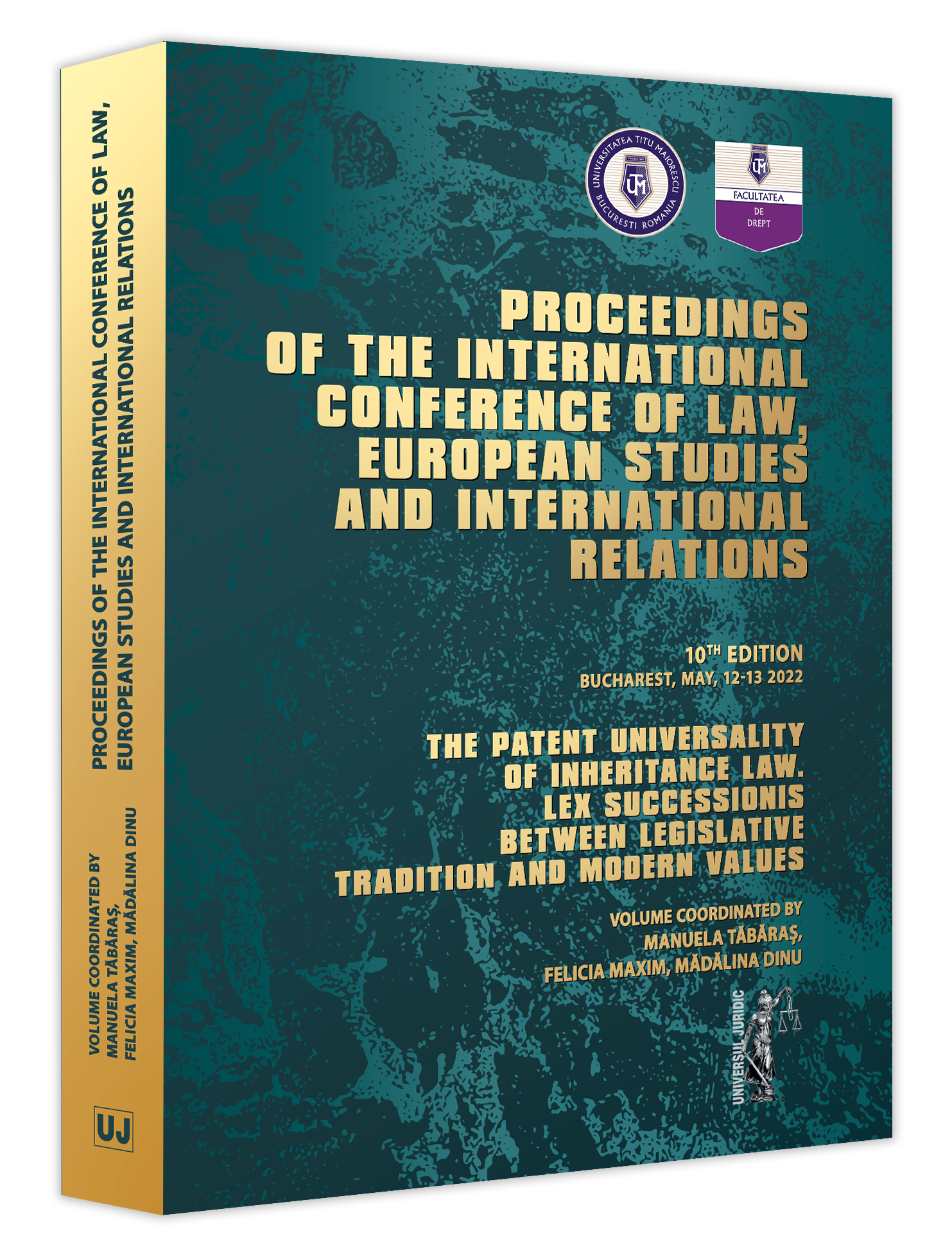
Keywords: Innovation; technology; research projects etc Romanian law; the legal order of the European Union; sovereignty; patriotism; globalism;
In 2019, at the UN, Donald Trump surprised with a nationalist speech in which he stated that „The future belongs to the patriots. The future belongs to the sovereign and independent nations, which protect their citizens, respect their neighbour’s and honour the differences that make each country special and unique”. Regarding the nationalism/patriotism vs. globalism dispute, the American president said, „If you want democracy, keep your sovereignty! If you want freedom, be proud of your country! If you want peace, love your nation! The future does not belong to the globalists! The future belongs to the patriots. The future belongs to the sovereign and independent nations, which protect their citizens, respect their neighbours and honour the differences that make each country special and unique. When you open your heart to patriotism, there is no room for prejudice. The future does not belong to globalists. The Bible says, „How good and pleasant it is for God's people to live together in unity”: politicians who support globalism to the detriment of national sovereignty are wrong; national structures must be protected, not replaced by supranational ones! The future belongs to the patriots. The future belongs to the sovereign and independent nations, which protect their citizens, respect their neighbour’s and honour the differences that make each country special and unique. That's why we in the United States have embarked on a fascinating program of national renewal. In everything we do, we focus on mobilizing the dreams and aspirations of our citizens. Globalism has exerted a religious attraction on past leaders, leading them to ignore their own national interests. But as far as America is concerned, those days are gone in history”. What was, but especially, what will be the role of the Romanian intellectual in the labyrinth of transformations of law in the national and European space after 1989?
More...